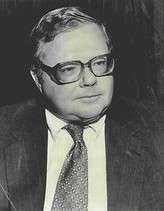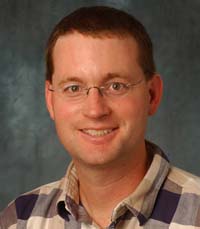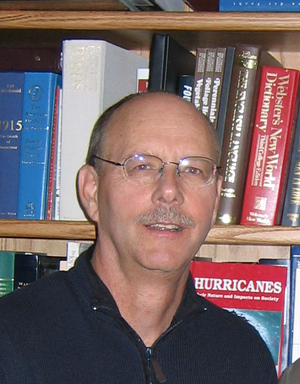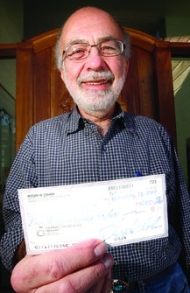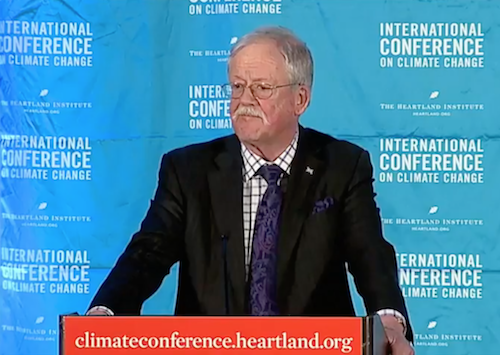Roger MacBride (Deceased)
Credentials
- Undergraduate degree, Princeton University.1Wolfgang Saxon. “Roger MacBride, 65, Libertarian And ‘Little House’ Heir, Is Dead,” The New York Times, March 8, 1995. Archived November 5, 2012. Archive.fo URL:https://archive.fo/r55NR
- Law degree, Harvard Law School.2Wolfgang Saxon. “Roger MacBride, 65, Libertarian And ‘Little House’ Heir, Is Dead,” The New York Times, March 8, 1995. Archived November 5, 2012. Archive.fo URL:https://archive.fo/r55NR
Background
Roger Lea MacBride (1929 – 1995) was a Libertarian Party candidate for president in 1976 and ally to Charles Koch. He has been described as possibly “the first candidate to explicitly describe himself as a ‘libertarian-Republican.'” According to a 1976 profile and interview in Reason magazine, MacBride “gained national attention in 1972 when, as a Republican elector in Virginia, he cast his ballots for the Libertarian Party candidates, John Hospers and Tonie Nathan,” rather than the incumbent president, Republican Richard Nixon, who had won the election.3“History of the Republican Liberty Caucus,” Republican Liberty Caucus, February 20, 2011. Archived July 22, 2011. Archive.fo URL:https://archive.fo/2gKEG
According to his obituary in The New York Times, MacBride made his fortune as an heir to the “Little House on the Prairie” series of children’s books. MacBride had been a “political disciple” of Rose Lane, daughter of series author Laura Ingalls Wilder, who adhered to the “laissez-faire objectivist philosophy” of Ayn Rand. Lane, who died in 1968, made MacBride the executor and sole heir of her estate. MacBride went on to co-create and co-produce a successful TV show based on the books.4Wolfgang Saxon. “Roger MacBride, 65, Libertarian And ‘Little House’ Heir, Is Dead,” The New York Times, March 8, 1995. Archived November 5, 2012. Archive.fo URL:https://archive.fo/r55NR
MacBride wrote A New Dawn for America: The Libertarian Challenge, published by Green Hill in 1976. The New York Times described the book as a “Libertarian Party manifesto.”5Wolfgang Saxon. “Roger MacBride, 65, Libertarian And ‘Little House’ Heir, Is Dead,” The New York Times, March 8, 1995. Archived November 5, 2012. Archive.fo URL:https://archive.fo/r55NR MacBride also helped form the Republican Liberty Caucus inside the Republican Party and chaired the group from 1992 until his death in 1995.6“Background & Early History” (PDF), Republican Liberty Caucus, 2005. Archived .pdf on file at DeSmog.
MacBride, along with Charles Koch, was one of the original five shareholders in the Cato Institute, along with Ed Crane, Murray Rothbard, and George Pearson. Ed Crane reportedly met Koch at a campaign fundraiser for MacBride, and was “impressed by Koch’s commitment to libertarian principles.”7“The Battle for the Cato Institute,” Washingtonian, May 30, 2012. Archived September 13, 2019. Archive.fo URL: https://archive.vn/rOMCR
Documents published by KochDocs show that MacBride played a significant role in the Libertarian Party’s evolution during the 1970s. A pamphlet distributed at a Libertarian Party convention noted that MacBride’s 1972 vote for a Libertarian nominee at the Republican National Convention “tripl[ed] public awareness of the LP overnight.”8“1982 (ca) Libertarian Party Convention Program: History excerpt,” Retrieved from DocumentCloud. Contributed by Climate Investigations Center.
Stance on Climate Change
MacBride does not appear to have made any official statements on climate change.
Key Quotes
October 1976
MacBride was interviewed by Reason magazine about his campaign for the presidency, shortly before the Republican National Convention. Select questions and responses below:9“MacBride’s March on Washington,” Reason, October 1, 1976. Archived September 13, 2019. Archive.fo URL: https://archive.fo/Czcdq
REASON: What effect do you expect your candidacy to have on the American political party system, Roger?
MACBRIDE: I can’t analyze that this far in advance. The system is collapsing visibly all around us. The Republican Party clearly is destined for the same grave that the Whigs lie in and what is going to result after November as a consequence of that fact is still veiled from us. I am in hopes that this Libertarian campaign will provide a foundation such that we will be one of the two major parties within this country in the next four years.
REASON: These days, being a Libertarian isn’t that much different than being a Republican in terms of supporting a minor party—the polls show that Republicans only have the support of 18% of the electorate. So they aren’t that far ahead of the Libertarians anymore. Do you expect that the Libertarian Party is going to replace the Republicans as the number two party?
MACBRIDE: Well, in the sense that the Republicans are just going to vanish and that we have the prospect to be the other major party, yes. But certainly not replace them in any sense of stepping into their shoes and having them remodeled. The Republican Party’s disappearing because it stands for nothing and when that sort of thing happens in American political life, it’s gone. We will be a national party, if we so become, because of the idealism of our cause and of the correctness of our stand.
REASON: I assume that you’re against compulsory taxation?
MACBRIDE: Sure. Manifestly the taking of something from one person and the delivery of it to another by force is morally wrong.
REASON: To the extent the opportunity arose to fill Supreme Court vacancies during your term of office, you’d be able to put in libertarian justices who would be able to do very rapid work in eliminating a lot of the coercive restrictions that have been placed on us over the years.
MACBRIDE: Yes. I think we’ll have our first justice in quite some time with the first initial K on the court.
REASON: Roger, some of our readers are familiar with your intellectual development toward libertarianism. Could you briefly state now, for those of our readers who are not familiar with the process, how you personally evolved into a libertarian?
MACBRIDE: Sure. I was sixteen years old when my father condensed a book of Rose Wilder Lane’s for the Reader’s Digest, and introduced me and my sisters to her. Rose was around sixty at the time and, along with a few other people such as George Schuyler and Albert Jay Nock and John Chamberlain at that time, was a libertarian and felt that the cause was going to die out with their deaths, unless some young people were recruited. She was busily trying to recruit as many intelligent young people as she could, as indeed the rest were and set herself to fascinate me, and Rose Lane, as most everybody who ever knew her will agree, could be the most fascinating person in the world when she wanted to be. My sisters weren’t much interested, being nonpolitical, but I was hooked and I used for years to hitchhike up to her house on vacations from school and college and ask her dumb questions such as, “Mrs. Lane, if there are so many hungry people in the world, why shouldn’t there be wage and price controls, so that food will be cheap and they can have all they want?” And she would patiently guide me in these matters until eventually I had the philosophy whole and pure.
Key Deeds
April 6, 1991
According to a Republican Liberty Caucus brochure outlining its early history, Roger MacBride was responsible for planning the early formation of the RLC at a meeting on his Florida Estate. MacBride, Alan Turin, Alan Lindsay, Eric and Barbara Rittberg, Rex and Susan Curry, and Tim Condon met and planned a “coming out party” for the RLC that would take place at the National Young Republicans convention in July 1991.10“Background & Early History” (PDF), Republican Liberty Caucus, 2005. Archived .pdf on file at DeSmog.
MacBride would go on to fund the RLC‘s newsletter, “Republican Liberty,” as well as heading the caucus’ “Council of Trustees” with members including Clifford Thies and William Hunscher.
March 23, 1976
In what the KochDocs project describes as consistent with other correspondence surrounding the 1976 presidential election, the Libertarian Party flagged recent news coverage of their presidential candidate, MacBride, to Koch. In this case, it was a profile of MacBride appearing in People magazine.11“1976 Libertarian Party Flags Media Coverage of MacBride Presidential Campaign to Funder Charles Koch,” KochDocs. Archived .pdf on file at DeSmog.
December 23, 1975
Charles Koch sent a letter to the “Rocky Mountain Oilman” newspaper noting his public support for the Libertarian Party and its presidential candidate, Roger MacBride, and seeking support from the Oilman.12“1975 Charles Koch Asks the “Rocky Mountain Oilman” to Fund Libertarian Presidential Candidate Roger MacBride,” KochDocs.
“For nearly ten years, Roger MacBride and I have worked together attempting to advance ideas of liberty and free enterprise. Over this period we have become good friends and I have grown to respect his ability and integrity. Roger is both a successful businessman and noted constitutional lawyer and scholar. He is far better fitted to be President than any candidate of any party has been in my lifetime,” Koch wrote in the letter.
The document was highlighted in a 2014 article in The New York Times by Nicholas Confessore, as well as being made available by the KochDocs project. Original documents are housed at University of Virginia’s Albert and Shirley Small Special Collections Library.13Nicholas Confessore. “Quixotic ’80 Campaign Gave Birth to Kochs’ Powerful Network,” The New York Times, May 17, 2014. Archived September 7, 2014. Archive.fo URL:https://archive.fo/JlFyR
1975–1976
Correspondence from Ed Crane and the Libertarian Party, published at KochDocs, outlines much of Roger MacBride’s campaign activities for the 1976 election.14“1975-76 Ed Crane Correspondence about the Libertarian Party Fundraising Letters and Visibility Events,” KochDocs. Archived .pdf on file at DeSmog.
1975–1976
A pamphlet distributed at a Libertarian Party convention notes that MacBride won an early ballot victory at a 1975 presidential nominating convention in New York City that drew 500 libertarians.15“1982 (ca) Libertarian Party Convention Program: History excerpt,” Retrieved from DocumentCloud. Contributed by Climate Investigations Center.
“Controversy erupts over VP nomination,” the pamphlet notes, when “MacBride vetoes self-proclaimed ‘tax resistor and smuggler’ Jim Trotter, who is leading after first VP ballot.” The pamphlet also credits MacBride with inspiring over 250 libertarians to run for office in the following year.
1972
As a Republican elector in Virginia, Roger MacBride cast his ballot for the Libertarian Party ticket rather than the victorious Republican ticket. Clifford Thies, writing at the Foundation for Economic Education in 1997, described MacBride’s dissenting vote as a “a bolt from the blue [that] sparked life into the neophyte organization.”16“Cast a Giant Ballot: Roger MacBride Made the Libertarian Party the Most Important Third Party in America,” Foundation for Economic Education, October 1, 1997. Archived April 8, 2016. Archive.fo URL: https://archive.fo/HlZuC
The Cato Institute reported that MacBride’s vote made Theodora Nathan, the Libertarian nominee for vice president, the first woman in American history to receive an electoral vote.17David Boaz. “RIP Tonie Nathan, the First Woman to Receive an Electoral Vote,” Cato Institute, March 21, 2014. Archived September 13, 2019, Archive.fo URL: https://archive.fo/vwsmr
Affiliations
- Republican Liberty Caucus — Former chairman and vital in the group’s formation.18“Background & Early History” (PDF), Republican Liberty Caucus, 2005. Archived .pdf on file at DeSmog.
- Cato Institute — One of five original shareholders.19“The Battle for the Cato Institute,” Washingtonian, May 30, 2012. Archived September 13, 2019. Archive.fo URL: https://archive.vn/rOMCR
Social Media
- No known social media.
Publications
- A New Dawn for America: The Libertarian Challenge (Green Hill, 1976)
Other Resources
- “Roger MacBride” biographical entry on Wikipedia
- “Roger MacBride 1976 presidential campaign” on Wikipedia
Resources
- 1Wolfgang Saxon. “Roger MacBride, 65, Libertarian And ‘Little House’ Heir, Is Dead,” The New York Times, March 8, 1995. Archived November 5, 2012. Archive.fo URL:https://archive.fo/r55NR
- 2Wolfgang Saxon. “Roger MacBride, 65, Libertarian And ‘Little House’ Heir, Is Dead,” The New York Times, March 8, 1995. Archived November 5, 2012. Archive.fo URL:https://archive.fo/r55NR
- 3“History of the Republican Liberty Caucus,” Republican Liberty Caucus, February 20, 2011. Archived July 22, 2011. Archive.fo URL:https://archive.fo/2gKEG
- 4Wolfgang Saxon. “Roger MacBride, 65, Libertarian And ‘Little House’ Heir, Is Dead,” The New York Times, March 8, 1995. Archived November 5, 2012. Archive.fo URL:https://archive.fo/r55NR
- 5Wolfgang Saxon. “Roger MacBride, 65, Libertarian And ‘Little House’ Heir, Is Dead,” The New York Times, March 8, 1995. Archived November 5, 2012. Archive.fo URL:https://archive.fo/r55NR
- 6“Background & Early History” (PDF), Republican Liberty Caucus, 2005. Archived .pdf on file at DeSmog.
- 7“The Battle for the Cato Institute,” Washingtonian, May 30, 2012. Archived September 13, 2019. Archive.fo URL: https://archive.vn/rOMCR
- 8“1982 (ca) Libertarian Party Convention Program: History excerpt,” Retrieved from DocumentCloud. Contributed by Climate Investigations Center.
- 9“MacBride’s March on Washington,” Reason, October 1, 1976. Archived September 13, 2019. Archive.fo URL: https://archive.fo/Czcdq
- 10“Background & Early History” (PDF), Republican Liberty Caucus, 2005. Archived .pdf on file at DeSmog.
- 11“1976 Libertarian Party Flags Media Coverage of MacBride Presidential Campaign to Funder Charles Koch,” KochDocs. Archived .pdf on file at DeSmog.
- 12
- 13Nicholas Confessore. “Quixotic ’80 Campaign Gave Birth to Kochs’ Powerful Network,” The New York Times, May 17, 2014. Archived September 7, 2014. Archive.fo URL:https://archive.fo/JlFyR
- 14“1975-76 Ed Crane Correspondence about the Libertarian Party Fundraising Letters and Visibility Events,” KochDocs. Archived .pdf on file at DeSmog.
- 15“1982 (ca) Libertarian Party Convention Program: History excerpt,” Retrieved from DocumentCloud. Contributed by Climate Investigations Center.
- 16“Cast a Giant Ballot: Roger MacBride Made the Libertarian Party the Most Important Third Party in America,” Foundation for Economic Education, October 1, 1997. Archived April 8, 2016. Archive.fo URL: https://archive.fo/HlZuC
- 17David Boaz. “RIP Tonie Nathan, the First Woman to Receive an Electoral Vote,” Cato Institute, March 21, 2014. Archived September 13, 2019, Archive.fo URL: https://archive.fo/vwsmr
- 18“Background & Early History” (PDF), Republican Liberty Caucus, 2005. Archived .pdf on file at DeSmog.
- 19“The Battle for the Cato Institute,” Washingtonian, May 30, 2012. Archived September 13, 2019. Archive.fo URL: https://archive.vn/rOMCR

